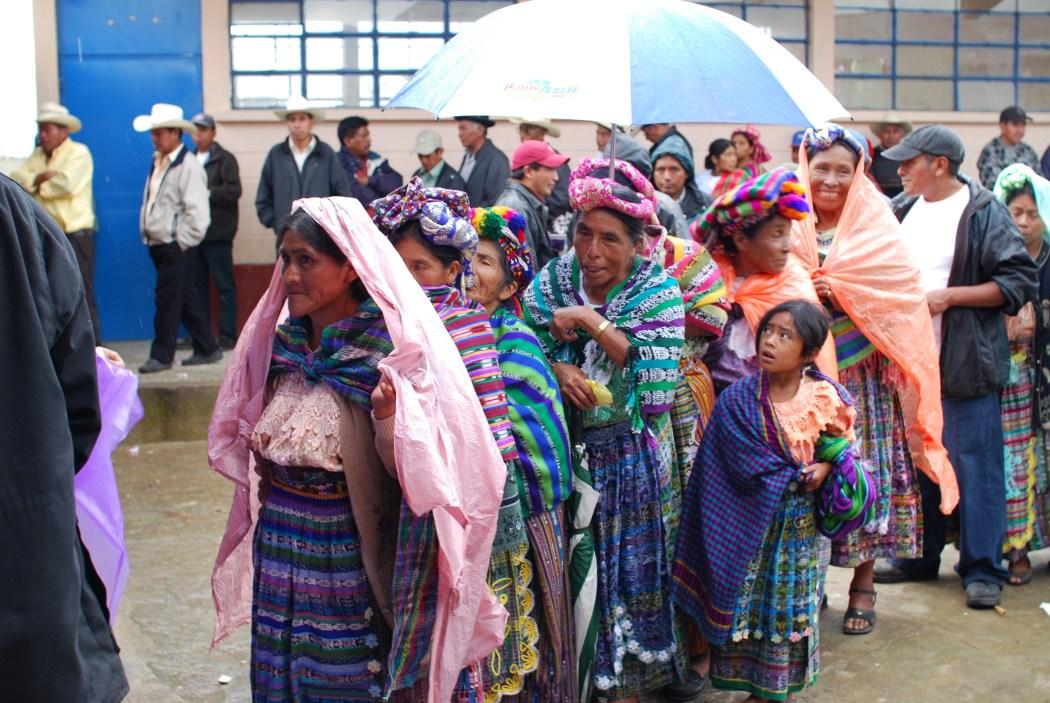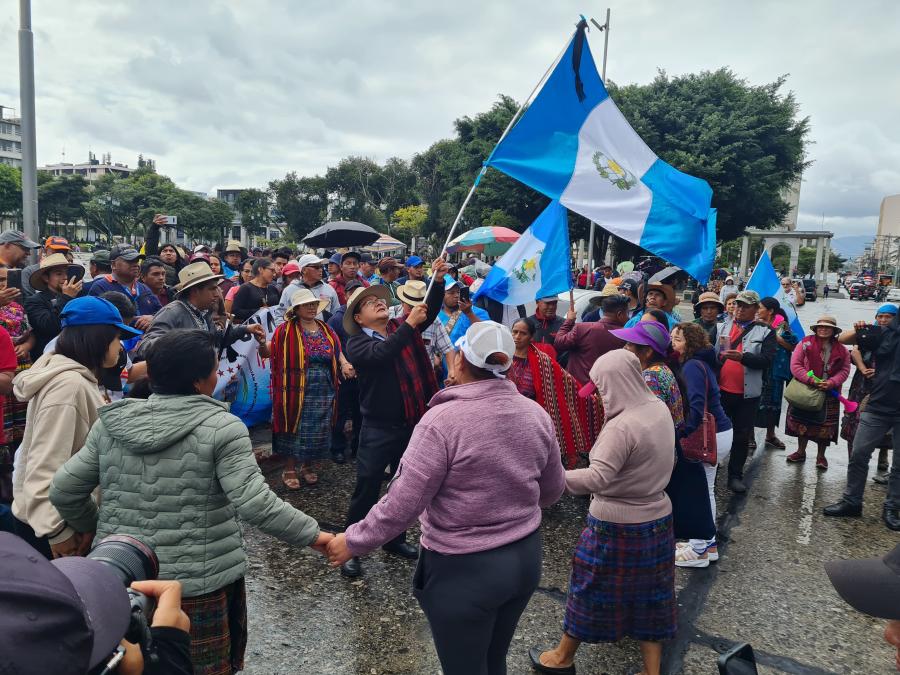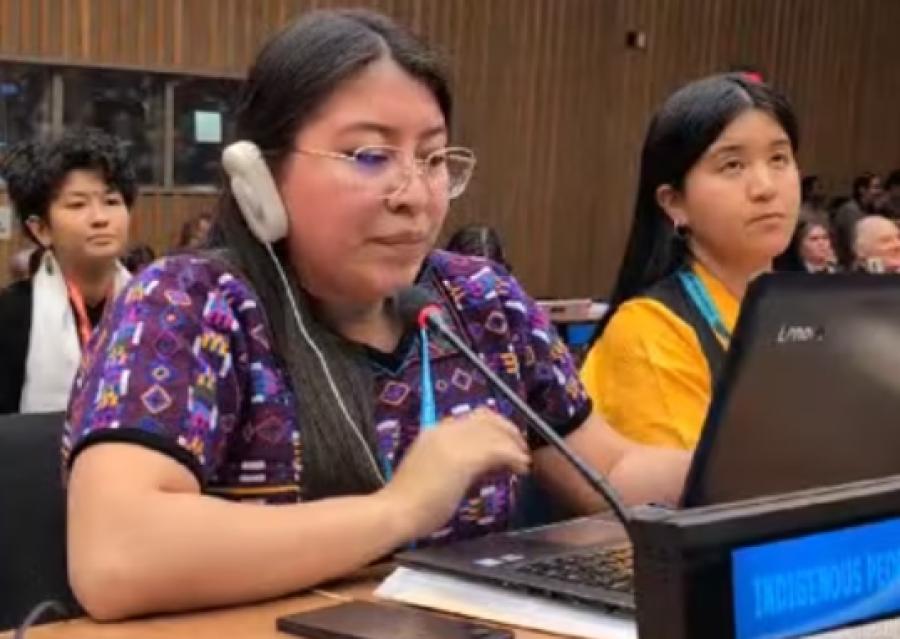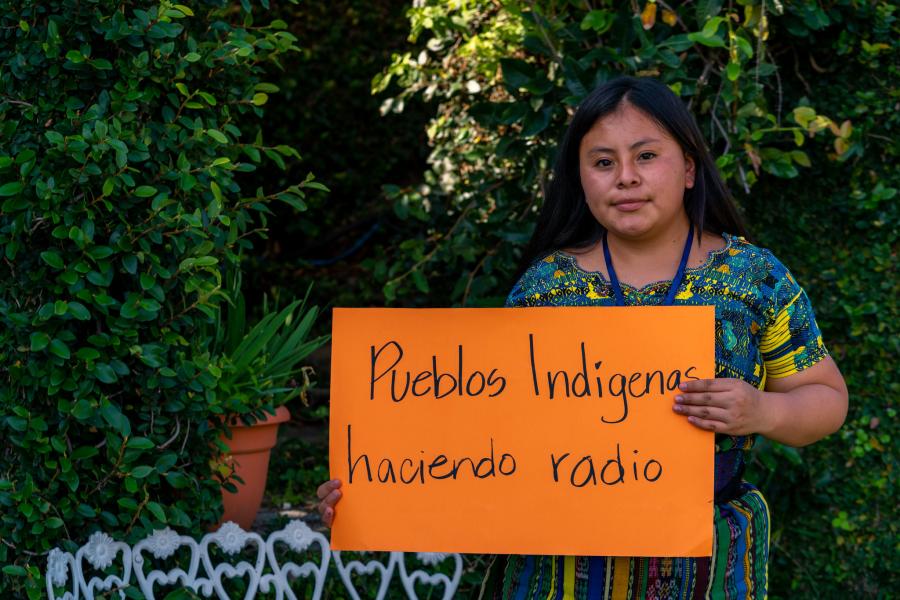
By María Recinos y Diana Pastor, reposted from EntreMundos
According to data from the National Registry of Persons in Guatemala (RENAP) in the year 2018, women represented 49.94% of the 19,658,562 people living in Guatemala. However, this rate is not reflected in the number of women running for public office at the national, regional and local level in this election, and even less so in the number of women who currently occupy these positions. One only needs to consult the political history of the country to realize the situation: since the founding of Guatemala as a republic in 1847 and the start of presidential elections, never has there been a woman in that office; the number of men in Congress far exceeds that of women (20% of the seats are occupied by women) and the number of female mayors can be counted on two hands.
The freedom of women to participate in elections is relatively new. With the end of the internal armed conflict, the majority of social organizations (including women’s organizations) focused their efforts on the peace agenda and the fight for the inclusion and recognition of human rights as a condition that would be conducive to the exercise of citizenship. The right to vote had already been declared in the Constitution of Guatemala many years before, in 1965, but twenty years would have to pass before universal citizenship, both for men and women, was declared in the Constitution of the Republic of Guatemala. Before that, women were excluded from the life of a citizen and thus any type of participation in politics.
Today, it begs the question: what advances have been made in the participation of women in Guatemalan politics? As we mentioned previously, the participation of women in this realm is in precarious conditions and faces particular challenges, unique to a Guatemalan culture framed in the patriarchy. In the electoral context, the matter is not openly addressed, as the structural problems of the political system face today a profound crisis that entails a reduction in political spaces where women can make an impact and propose and advance ideas to fight for their rights and achieve their wellbeing.
Virginia Oroxom, a female leader in Quetzaltenango, notes that “one of the limiting factors is that machismo is still persistent in our society and manifested in the minimal support that families have towards the participation of women and low level of access to education that they have.” Women face diverse obstacles; one of them is the lack of confidence that they have in themselves to participate in political activities, including running for political office. Women participate frequently when they have reached leadership positions where they are noted for being empowered women, capable and experienced in getting involved in the spaces where decisions benefitting women can be made.
However, there are still difficulties, even for women with more developed political participation. As Juana Chic Castro, leader of the Network of Women of Santa María Chiquimula Totonicapán, notes: “…many of my fellows and I have had the opportunity to be educated and trained, and our role as leaders has helped the community to have a presence in certain spaces.” However, the authorities do not take them into account as they are not conscious of the role that a woman can play in an election.
Elvia Choxom is a member of the Union of Quetzaltecan Workers (UTQ), in Quetzaltenango, and agrees with Castro. “We, as leaders, are empowered politically, however we are not immersed in elections nor do we fit into those spaces, though we have the basic grassroots organization needed to be involved with or form part of a list of candidates, and we have experience in women’s groups because we know the needs of our community, which would allow us to make an impact on the political level. Many of the authorities that are representing us do not know what we need, and I believe that we as a people ought to demand that those who represent us be known for the work that they have done in the communities. In general, many women distrust politics, and it is because of this that they are excluded from participating and not taken into consideration in decision-making.”
It is important to mention that in additions to the previously mentioned factors, there are other disadvantages that women face in elections, as they face frequent aggressions in their personal lives. For example, during this current electoral cycle, one of the former candidates for the presidency was recriminated frequently for “her past, regarding her multiple marriages” and another was constantly deemed “ugly” as if these were valid arguments to refute their ability to occupy such an office in Guatemala.
Another case that can be mentioned is that of a candidate running for the mayor of a certain municipality, about whom personal private material was distributed on social media. This type of aggressions that go directly against the integrity of women discourage many to participate, as they prefer to not expose themselves to the public eye. Truly, it is difficult to regulate comments that are made about women who participate in politics, above all in this era of social media explosion, though this tendency to denigrate them for being women can bring greater consequences, as in the case of the councilwoman Juana Quispe from Bolivia, who received threats and attacks for fulfilling her duties and was then assassinated in 2012.
If we add to the above the fact that women play multiple roles in society, we find ourselves with a level of female participation that still remains fragile. However, the entire outlook is not bleak: more and more women turn out to vote at the polls and many of them participate in electoral committees or as vote collectors and election observers, which is promising. However, women still have enormous challenges to face in order to participate, exercise their rights and ensure that they be respected. The participation of women promotes an equitable and inclusive culture that contributes to and improves living conditions, such that, in order to have active participation it is necessary that they work together and put their knowledge in practice so as to have a role in the development process.
María Recinos studies Social Work at the Centro Universitario de Occidente and is currently working on a research project on political participation of women in Quetzaltenango and Quiché. Diana Pastor is the editor of EntreMundos magazine.



